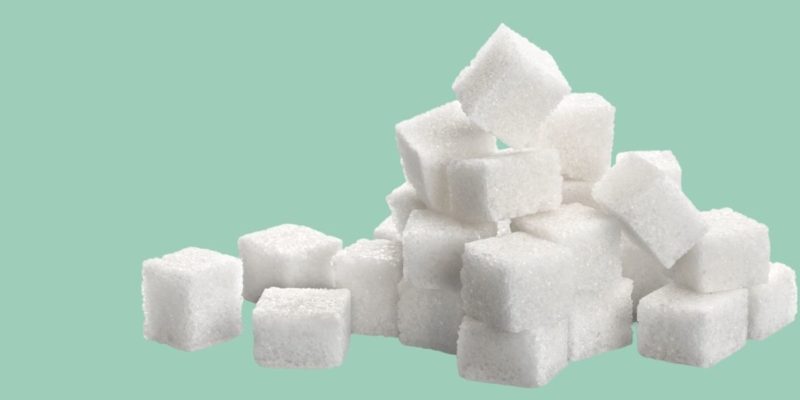Add These Gluten-Free Foods to Your Diet to Improve Kidney Health

The gluten-free diet has become the eating craze of our time. Most grocery stores have a gluten-free section. Most restaurants have a gluten-free menu. And even long-time products like Cheerios are making the switch.
Could trendy hype actually lead to all of these changes? Is it just some fad that will be over in a couple more years? Or is there something deeper happening?

The truth is there are real reasons why so many people are tossing out the bread. It’s not to be trendy or hip.
It’s to be healthy.
And that may just include your kidney health.
Discover in just 7 short questions why you may be experiencing unwanted kidney pain and uncover how to alleviate these destabilizing symptoms. Take The Kidney Quiz Now!
Our kidneys may be small, but they play a huge roll in keeping us alive and healthy every single day. When they start to have problems, our whole body starts to have problems. So it is important to learn more about anything that could keep them healthy.
To understand why gluten and your kidneys could be connected – and to see how to meld a gluten-free diet with a kidney diet…. Read on!
What Is Gluten?
Before we go any further, let’s know what we are talking about when we talk about gluten
Gluten is a type of protein found in three main categories of food: wheat, rye, and barley.
But if only it were as easy as cutting out all the obvious sources of wheat, rye, and barley!
It turns out gluten can hide just about anywhere. It’s a great binder, so many products that you would have never even guess have gluten in them.
To have a deep dive into understanding gluten, check out this quick TED-Ed video on the topic:
Celiac vs. Gluten Intolerance vs. Personal Choice
There are many different reasons why a person would avoid gluten.
- The first and most obvious is Celiac disease. When somebody has this condition, the lining of his or her intestines is damaged. This leads to all sorts of digestion problems like diarrhea or bloating. But it can also lead to infertility, depression, joint pain, and even canker sores.
- Then there are non-celiac sensitivities to gluten or wheat intolerance. Many of these people can still have real, painful, uncomfortable symptoms when they consume gluten. These symptoms can also include digestive issues.
- Finally, you have the group of people who don’t have Celiac, don’t seem to have sensitivity, but just like the way their body feels when they don’t eat gluten.
The first two groups need to be strict about gluten-free eating. They can’t have “cheat days” or “cheat meals.” It’s an all or nothing sort of diet. The third group can be more flexible.
If you are in the first two groups, you may find eating gluten-free dramatically helps your kidneys. But some people in the third group want to give it a shot to see if it helps their kidney symptoms.
Bonus: Download This Essential Home Remedies Guide that will show you how to tackle your worst kidney stone symptoms quickly.
Where Do You Find Gluten?

So in order to eat gluten-free, you have to know where gluten can be found. Most commonly gluten can be found in products like:
- Bread
- Pasta
- Crackers
- Cookies
- Cakes
- Cereal
- Oatmeal
- Soy Sauce
- Spice mixes (like taco seasoning)
- Marinades
- Sauces
- Condiments
- Salad dressings
- Broths
- Couscous
- Wheat bran
- Seitan
- Barley malt
- Malt vinegar
- Veggie Burgers
- Beer
But don’t think foods not on this list are always safe. The key to eating gluten-free is to read packages carefully. Look for brands that carefully label their packaging with a “gluten-free” mark.
When in doubt, make Google your friend. Simply enter “Is (brand name) gluten-free?” and see if their website lists their allergen information.
You may be looking at this list and feel super defeated about the idea of starting a gluten-free diet. But I have great news for you! So many of these foods can be found in gluten-free options.
- Gluten-free bread and pastas? You bet!
- Gluten-free soy sauce? Yes… it’s called Tamari
- Gluten-free cake, pancake, cookie, or brownie? You bet… and they taste genuinely delicious.
The Gluten/Kidney Connection
When somebody has Celiac, continuing to eat gluten can harm all sorts of body systems. For women, continuing to eat gluten may make it hard or impossible to have children. For those with mental health issues, gluten can exacerbate the problems. The list goes on and on.
One way gluten can harm the body of somebody with Celiac is through the kidneys. Studies have shown that simply getting rid of the gluten can resolve the issue – or at least improve it.
Plus, avoiding gluten can help with something called “Immunoglobulin A nephropathy” – where an antibody can prevent your kidneys from working properly.
Gluten-Free Foods For Kidney Health

We already know what to avoid in a gluten-free diet, so let’s get to the fun part: what you can eat.
I’m going to go over all the main food groups. I’m going to tell you what is safely gluten-free. Then from those options, we’re going to talk about what foods are safe for the kidneys. When it comes to kidney disease, the most common things you will have to limit are:
- Potassium
- Phosphorus
- Sodium
Kidney stone sufferers also have to limit sodium, but should also limit animal meat. There are a lot of things to consider, so let’s go deeper.
1. Produce
When it comes to the gluten-free side of things, all produce is good to go. There are no restrictions.
But when it comes to the kidney health side of things, you need to be a bit pickier when it comes to those with kidney disease. They often need to lower their potassium intake. If your doctor has told you to eat less potassium, you are going to want to choose your produce more carefully.
Fruits and vegetables low in potassium include:
- Apples
- Pineapples
- Pears
- Cherries
- Berries
- Peaches
- Grapes
- Eggplant
- Cauliflower
- Cucumber
- Peas
- Asparagus
- Cabbage
- Peppers
- Celery
- Lettuce
These are foods you can fill up your plate with. They are packed full of vitamins, minerals, and other nutrients that will boost your overall health and kidney health too.
Produce higher in potassium that should be limited include:
- Bananas
- Oranges
- Melons
- Dates
- Avocadoes
- Artichokes
- Spinach
- Okra
- Beets
- Potatoes
- Tomatoes
2. Meat
Meat is entirely 100% gluten-free (though keep in mind many things you put on meat may not be – like marinades – so check the labels closely).
Those with kidney disease can and should still have some meat, but it shouldn’t be overdone. Plain meats, fish, and poultry are all good choices. Make sure you do not choose deli meats since they are so high in sodium (bad for kidney disease and kidney stones).
If your kidney struggles are with kidney stones, make sure you limit the amount of meat you have in a meal. Animal protein of all kinds has been directly connected to stone formation.
The goal here should be “keep it small.”
3. Grains
Many flour-filled products that have gluten are also a big no-no when it comes to a kidney diet too. This includes things like muffins, cookies, biscuits, cereals, pretzels, etc.
The goal then is to choose gluten-free bread or pasta that is low in phosphorus and sodium.
Rice is often a gluten-free alternative to other grains, but those with kidney health issues have to choose the right rice. We normally hear how brown rice is better than white rice, but the opposite is true for those with kidney disease. Brown and wild rice are high in potassium.
Rice pasta can be an alternative if you still want to enjoy spaghetti or stir-fry noodles.
4. Dairy

Dairy products are also gluten-free. But some people with kidney disease need to limit them. And those with kidney stones benefit from reducing all forms of animal protein.
Dairy can be high in the problematic phosphorus.
Rice milk can be a valid option for some.
If dairy has been completely removed from your diet by your doctor, you may need to take a calcium supplement that has no phosphorus.
5. Fats
Fats like oil and butter are naturally gluten-free, so they can be included in your diet. But a kidney diet recommends not getting any more than 1 tablespoon a day (some recommend no more than 1 teaspoon).
- Lightly spraying your pans with oil instead of pouring in oil is a great way to limit your oil while cooking.
- 100% natural applesauce with no sugar added can be a fabulous butter substitute in baking.
Want To Go Gluten-Free? Get Help From A Dietician
As you can see, balancing a gluten-free diet with a kidney-friendly diet can be a bit tricky at first. Eventually, after you have been eating like this for a while, it will become second nature. But until you get to that point, talk to a dietician.
They can make recommendations based directly upon your exact kidney problems. The further along you are with kidney disease, the more cuts and reductions you have to make. A registered dietician will be able to tell you the right way to eat.
No matter what – choose to focus on the foods you still can eat. Then learn how to make modifications and alternations to the foods you love and miss. And never forget that food can literally become your medicine, making your everyday life so much better.
Gluten-Free For Your Kidneys
Going gluten-free is a big step for anybody. But going gluten-free with kidney diet considerations is a whole other story. You will need a bit of patience.
If you have decided to give this diet a try (and you got the go head from your doctor), make sure you try it for longer than a day or two. Commit to a month or two of gluten-free eating and carefully document your symptoms. See if there are any improvements.
Sources
https://www.kidneyfund.org/kidney-disease/chronic-kidney-disease-ckd/kidney-friendly-diet-for-ckd.html
https://www.kidney.org/content/keep-your-kidneys-healthy-5-foods-avoid
https://www.healthline.com/health/allergies/gluten-food-list#foods-to-avoid2
https://www.glutenfreesociety.org/gluten-damages-the-kidneys/
https://www.kidney.org/atoz/content/potassium
https://www.livestrong.com/article/518801-gluten-intolerance-and-the-kidneys/






